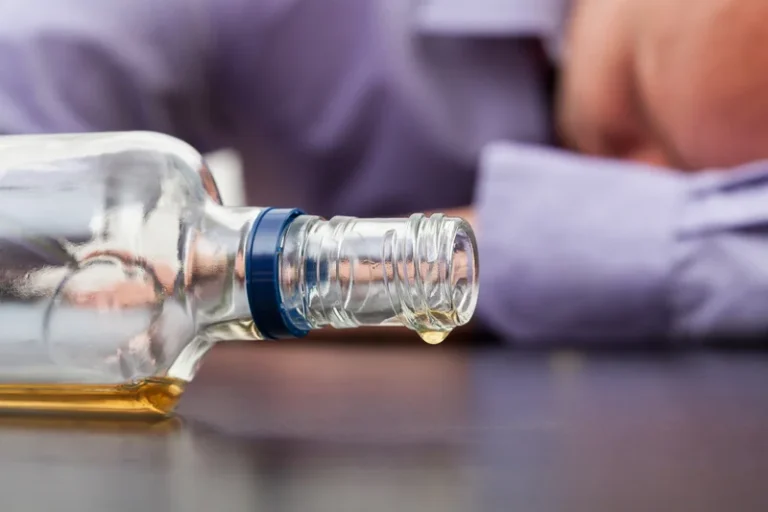
It is important for each individual to consider the pros and cons of drinking and to decide whether cutting down (harm reduction) or quitting altogether (abstinence) is necessary. When someone drinks in excess, however, or drinks as a way to cope with stressors or avoid problems, it can create physical and psychological risks. Crystal Raypole has previously worked as a writer and editor for GoodTherapy. Her fields of interest include Asian languages and literature, Japanese translation, cooking, natural sciences, sex positivity, and mental health. In particular, she’s committed to helping decrease stigma around mental health issues.
Nicotine in Psychology: Exploring Its Definition, Effects, and Implications
There continue to be many obstacles to matching clients to specific treatment programmes in real world settings and for many organisations patient–treatment matching remains impractical. Research would appear to indicate that the nature and severity of co-morbid and complex presentations such as psychiatric disturbance have a negative impact upon treatments for addiction, and this is arguably an area for further research (McLellan et al., 1997). This chapter is concerned with structured psychological interventions used to help people who experience alcohol dependence or harmful alcohol use. These approaches have been the focus of much research and debate over the years. Alcohol intoxication is a risk factor in some cases of catastrophic injury, in particular for unsupervised recreational activity. A study in the province of Ontario, Canada, based on epidemiological data from 1986, 1989, 1992, and 1995 revealed that 79.2% of the 2,154 catastrophic injuries recorded for the study were preventable, of which 346 (17%) involved alcohol consumption.
Social behaviour and network therapy

Alcohol consumption, particularly when excessive, can weaken the immune system, making it more difficult for the body to fight off infections. Regular heavy drinking can reduce the body’s ability to produce white blood cells and affect other components of the immune system. This susceptibility to illnesses can complicate existing health issues or create new ones, underscoring the importance of managing alcohol intake for maintaining overall health.

Effectiveness of multicomponent interventions
- However, the results of the analysis suggested that MET was cost effective compared with no further counselling after initial assessment, resulting in an ICER of AUS$3366 (£2,493) per QALY.
- The reward pathway, known as the mesolimbic pathway,28 or its extension, the mesocorticolimbic pathway, is characterized by the interaction of several areas of the brain.
- Taking a leaf out of Pooja Bhatt’s diary, let’s understand why battling alcohol addiction is necessary and what you can do, especially as a woman.
- The comparator against TSF was CBT (EASTON2007), couples therapy and psychoeducational intervention (FALSSTEWART2005; FALSSTWEART2006), MET and CBT (MATCH1997), and coping skills (WALITZER2009).
- Alcohol consumption, particularly when excessive, can weaken the immune system, making it more difficult for the body to fight off infections.
Clinical review protocol for the review of social network and environment-based therapies. The quality of this evidence is moderate, therefore further research is likely to have an important impact on confidence in the estimate of the effect and may change the estimate (see Appendix 18c for full GRADE profile). The World Health Organization has estimated that as of 2016, there were 380 million people with alcoholism worldwide (5.1% of the population over 15 years of age).

An evidence summary of the results of the meta-analyses can be seen in Table 65. An evidence summary of the results of the meta-analyses can be seen in Table 64. An evidence summary of the results of the meta-analyses can be seen in Table 63. Studies that could be included in these analyses compared BCT with the following; brief relationship therapy (FALSSTEWART2005), interactional couples therapy (OFARRELL1992) and alcohol-focused spousal involvement (WALITZER2004). The review results revealed that other therapies (that is, CBT and counselling) had significantly less post-treatment attrition than behavioural therapies.
- Alcohol intoxication is a risk factor in some cases of catastrophic injury, in particular for unsupervised recreational activity.
- For some people, a multimodal approach may offer the best possible treatment.
- Medium to high effects favouring couples therapy were found at all assessment points up to 12-month follow-up.
- This tool uses a set of questions for different scenarios.79 In the case of a specific combination of answers, different question sets can be used to yield a more accurate answer.
- At Greater Boston Addiction Centers, we provide expert care for those struggling with alcohol addiction, utilizing therapies such as CBT Therapy, DBT Therapy, and comprehensive Alcohol Treatment programs.
Table of Contents
In addition, physical therapies such as meditation and acupuncture are also covered in this review. Detoxification is done in a controlled, supervised setting in which medications relieve symptoms. Examination for other medical problems (such as liver and blood-clotting) is necessary.

- Overall, there is limited and poor-quality evidence that does not support the use of mindfulness-based meditation for treating alcohol dependence and harmful alcohol use.
- If you drink regularly, alcohol changes the way your liver works, your brain function and creates dependence – meaning you need to drink more to have the same effect.
- Furthermore, the addition of family therapy to coping skills did not show any significant benefit.
- The World Health Organization calls alcohol, when consumed in bulk, “a toxic, psychoactive substance,” one that is linked, experts say, to more than 200 diseases and conditions—among them liver, cardiovascular diseases, and several types of cancer.
- However, no significant difference was observed between short-term psychodynamic therapy and other therapies in reducing the quantity of alcohol consumed, heavy drinking rate or attrition.
About psychological dependence on alcohol half of people with alcoholism will develop withdrawal symptoms upon reducing their use, with 4% developing severe symptoms. Benzodiazepines are effective for the management of symptoms as well as the prevention of seizures. Certain vitamins are also an important part of the management of alcohol withdrawal syndrome.
The measures of effectiveness used are of limited usefulness to policy makers when assessing the comparative cost effectiveness of healthcare interventions. The clinical-effectiveness study compared psychological intervention and home detoxification with home detoxification alone. However, in the cost-analysis, home detoxification was compared with other detoxification programmes, such as inpatient and outpatient programmes. Therefore, the study did not directly assess the cost-effectiveness of adding psychological intervention to home detoxification. Overall, no significant difference https://ecosoberhouse.com/ was observed between counselling and other therapies up to 18-month follow-up in time to first drink (lapse), time to first heavy drink (relapse) and reducing heavy drinking episodes. However, other therapies (coping skills) were more effective than counselling in reducing amount of alcohol consumed when assessed at 12-month follow-up.
What is Alcohol’s Effect on Brain Chemistry?
All six studies were published in peer-reviewed journals between 1988 and 2006. Studies were excluded because they did not meet what is alcoholism the methodological criteria (see Chapter 3). Meta-analyses results revealed no significant difference between cognitive behavioural therapies and other therapies in maintaining abstinence both post-treatment and up to 15-month follow-up. A single study, however, did favour coping skills over counselling in the number of sober days at 12-month follow-up, and another single study favouring relapse prevention over psychotherapy at 15-month follow-up. However, these single outcomes do not reflect the meta-analyses results described above. In addition, cognitive behavioural therapies were found to be more effective at maintaining abstinence/light days when assessed up to 18-month follow-up (based on data by CONNORS2001).
